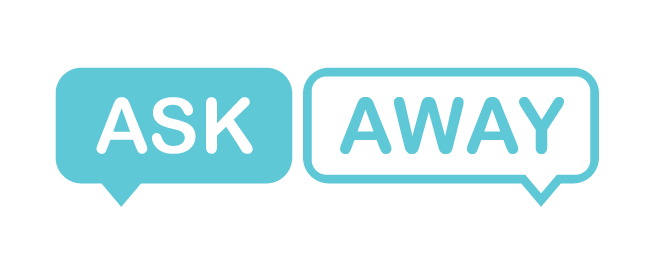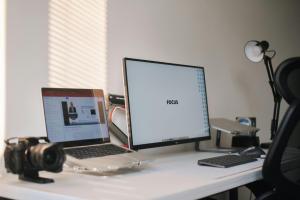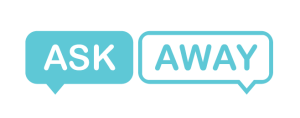When you actually make it to my desk, it becomes even more important to shine, and to avoid simple but lethal interview mistakes.
I have seen candidates make small mistakes and big mistakes. Although the small mistakes usually don\’t really bother me, they do stick with me. \”Oh yeah, that\’s the one that spilled the coffee all over my desk.\” It\’s not the thing you want to be remembered by. But trust me, spilling coffee on accident isn\’t nearly as bad as appearing uninterested. If you are interviewed for a role at our company and you have no question at all, I can\’t help to wonder: \”Do you even care?\”
Last time, we talked about a list of job interview mistakes you ought to avoid. These related to before the interview itself: helping you prepare better and set you up to perform better in the interview.
This time, we want to discuss the interview mistakes you need to avoid when you\’re already in the (virtual) room.
1. Being unprepared
We will discuss preparing for the role and the company in a bit. This point is about preparing for the talk. You have to practice in order to avoid fumbling, stumbling, and having bad – or worse, no – answers to questions. We addressed the two questions that will most likely come up and are easy to fail: \”tell me something about yourself\” and \”give me examples of your areas of improvement.
Make sure you practice your short introduction pitch, and practice the answers to questions you may expect, based on the company, the role or your background. Write them down, and answer them to yourself, so they roll off the tongue easily. This will do a few things. First of all, the preparation will ensure you don\’t trip over yourself in the interview. It will give the interviewer the impression you know yourself, and you know what you are talking about. It also helps you reduce your stress during the meeting. Unless you have nerves of steel and ice running through your veins, realizing you are messing up your answer in the job interview itself, will throw you off. It will set the tone for the rest of the interview. If you are not calm, you are not in control.
Spend the time, write down possible questions and answers, and practice.
2. Stay off your phone
Yes, this is something that we make sure you remember. When you\’re in the room, this is a crucial mistake you need to avoid to make. And with the phone being ever present, that\’s hard.
Unless you are expecting a very important phone call, you shouldn\’t have your phone near you. Yes, I have had candidates that were in the process of buying a house, and I have had candidates on standby for medical issues. If you explain why, we understand, and we will not hold it against you.
In all other cases, your phone should be tucked away, far and deep, so you are not distracted or tempted to look. It is a very, very bad look to have your phone out on the table, and watch the notifications pop up. In the interview, there is no excuse for you thinking that the latest Snap or Tiktok notification is anywhere near as important as the discussion you and I are having. Turn off the ringer (by the way, is having a ringer on still a thing?), and put it away.
Yes. The watch is the same. If you have a smartwatch, put it in airplane mode, in theater mode or off. Whatever you do, turn off the sound. I know your mind goes to the little \’ping\’ you just heard. You are selling yourself, and you need to be focused.
3. Bringing a drink
I am not too concerned that you will bring an Old Fashioned in your interview for Director of Advertising, or a Martini in your meeting for Agent (even when it\’s a different type of agent). I am talking about bringing your gallon-sized bucket of Diet Coke, your leaking styrofoam cup of iced tea or your coffee from the Seattle-based brewing company. The reason may seem trivial, but it may come across as rude to go to a meeting, and bring a drink for yourself, and not for your host. Come without a drink, and wait to be offered one. You can totally accept a coffee if offered, but as long as it doesn\’t make you jittery. Water is a safe bet. And it\’s always better to say \’yes\’ to water if offered, even if you\’re not going to have it. It is a normal and almost thoughtful exercise but can become a bit of a thing if you deviate from the norm.
I have got to be honest – if you come to my interview and you have a coffee or a Diet Coke in your hands, I would notice, but I wouldn\’t care. It wouldn\’t influence the outcome. But I know there are others who do. Don\’t run the risk of bumping into someone who does – theoretically.
4. Not asking questions
So, there are actually two sins when it comes to questions. One is to ask a really silly question. Or a question that three clicks on our company website would have answered. If you are clearly asking a question for the sake of asking something, it\’s not a good thing. Think a little longer.
Not asking any questions after we talked about the company and the job for almost an hour is worse, though. There is no way that everything is clear. It\’s impossible that the hiring manager conveyed everything that ever could matter about the job. There are things that are important, and you\’re dying to know. Not asking any questions can mean a few things, but the ones that hurt you are the following. First, you don\’t care enough. You just want to go. You had a good chat, but you\’re done. This lack of interest – or apparent – is lethal for your chances. The second one is that you are so arrogant that you know everything, and there\’s nothing you can ask anymore.
BOTH ARE BAD.
Assume that much of the topics you could possibly have questions about, be answered during the interview. Key metrics, organizational structure, details about the upcoming product launch. In line with number 1, prepare and think of a few questions. Ones that keep the discussion going and show your interest in the role and supporting the success of the company, is asking about the most important objectives the team or the organization have set. Ask about the impact of COVID.
Read the latest earnings report, blog posts or other news, and think of questions that show a deeper understanding of the organization and its environment. Be critical but avoid critique. If you see that there have been a few changes in the senior leadership, you can ask about that, but don\’t judge.
5. Not knowing about the company
That brings us to the last point. You have to prepare and do research and learn about the company. That is actually important for you as well. You never know what you find, in positive and more troubling sense. Are there financial concerns? Is there a lot of chatter on boards about the company? Check indeed.com and glassdoor.com for reviews about the company, and know what you are getting yourself into.
For the interview itself – you may get the question, \”what do you already know about the company?\”, and it shows you\’ve put in the effort to learn, if you have a good pitch. You can also pivot, and ask a question about something you read. \”I read the company successfully emerged from Chapter 11, which is very impressive. On that, I have a question: did that impact the culture?\” Show you understand what\’s driving the company and affecting your potential role and performance.
In conclusion – prepare
As you know, AskAway provides recruitment process solutions and tools. One of the tools is video recorded interviews. This offers the hiring team more flexibility to review interviews and answers, and share with a broader group of people. It is a powerful tool. Don\’t just take my word for it: give it a try, and use it for 30 days, free of charge without credit card.
For you, as candidate, it means that when you are interviewing using the AskAway solution, it will be harder to get away with mistakes. Avoiding mistakes altogether becomes even more important.
You can easily resolve this by preparing for the interview, and cutting out the chance of making rookie mistakes by not having questions, or not having answers. Make the recorded video interview your audition tape, and blow the team away with a strong performance.









